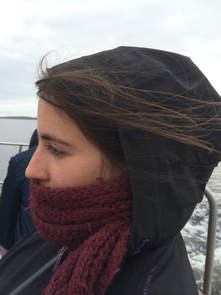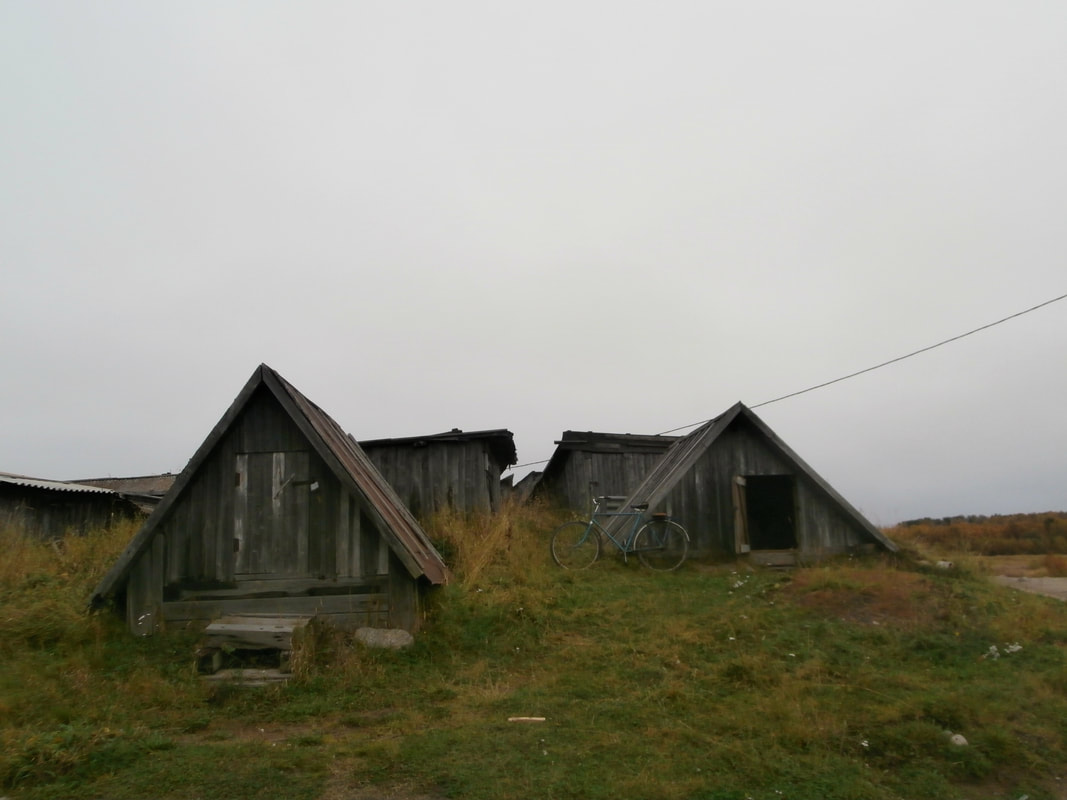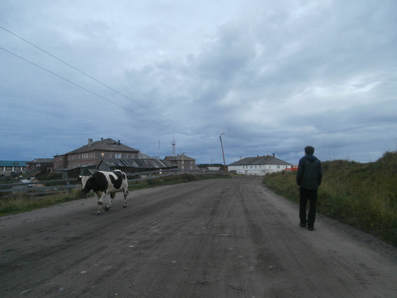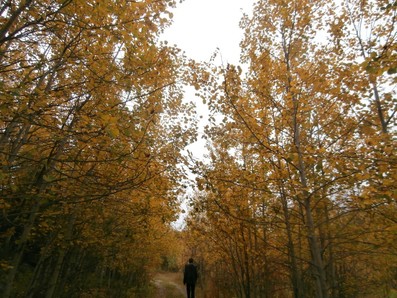Escaping a Gulag by Ben Stamp
A couple hours in, now acquainted with our three fellow travelers, was when we finally felt comfortable enough to ask: “What’s with the suitcases?”
“Well, we just shoved everything into the biggest bag we had. Six months is a long time!”
“Six months?” I gasped. “But the Solovetsky Islands aren’t that big. Are they?”
No, they weren’t. But they’d be working at the monastery, and no more boats would be travelling back to the mainland for six months.
“What do you mean no boats? Six months? We’re leaving in three days.”
We weren’t. We were on the last boat. The last boat for the next six months. Already two hours into a freezing vein of water, which soon would be a frozen one. Six months imprisoned on an island, an island that had been the site of one of the most infamous gulags in the Soviet Union.
Chains clattered.
A scream from here would never be heard. That's how Solzhenitsyn had described this place. These islands. These floating pieces of land piled with shipwrecked boats and stone towers, one slanted gust from crumbling. And I couldn't think of a better phrase to describe my feelings as we stepped off the boat, the boat which we didn’t have enough money to go back on alone. The boat that was the last boat.
The boat.
Imprisoned. Sentenced to six months, on a remote island in the North of Russia, with three days’ provisions and 2,000 rubles (~28 euros).
A scream from here would never be heard.
But one of our new acquaintances had given us hope: his brother had been living on the island already for two years. Perhaps he could get us back.
"Are you sure?" I asked, after our last hope echoed the words of his brother. Six months.
He nodded. Positive.
"Ben, what's he saying?" Vera’s vocabulary consisted of Hello, Yes, No, Beautiful, and Bye. But occasionally Bye and Hello got mixed up. Like the same-colored toothbrushes in the bathroom. For her, Paka and Privyet might as well have been toothbrushes.
"He's saying the same thing. Six months.” My Russian, while better, still wobbled around on skates, every once in a while catching a break and gliding gloriously. And then a turn would come.
The four hands waving goodbye meant we were officially alone.
We started where the brother had recommended. "Perhaps they have space." And then: a parting gift. "Good luck."
Here, blond-wood floors creaked, complaining to our feet. Here, the scent of cow manure, pungent pine, and a bit of grandma's house dust swam around us. Here, too, silence dominated. But not from peace and tranquility, no—from submission, from harsh acceptance. Not the kind of silence that makes you smile, but the kind that makes you quiver, that makes you stand erect, and tall, and proper, as if a Lieutenant is approaching. Or a mass murderer.
Here was a place far from other places. A place one might go to forget about places. Or might be sent, to have them forgotten. As was the case with Solzhenitsyn.
A scream from here would never be heard.
"Privyet?" I informed someone, anyone, of our presence, searching up the stairs. In the stables of bleating goats. In the empty hallway. At the check-in counter and in the dining room and the next hallway.
"Privyet." A doughy-faced woman, missing a smile. Something she'd been missing for years. Her eyes shifted to Vera. "You no stay here. Employees of monastery. Men only. Across road”—her powerful finger pointed—“there wooden cabin. Ask."
She, unlike the brother, did not leave us with any parting gifts.
"Privyet," I greeted the man in a long robe examining the sky outside the wooden cabin. His long-chained cross glinted in the sun. A reminder what one can rely on in a place like this. A place where screams are never heard. "We sent by woman. There. You know if rooms? Here?"
He, too, pointed. Down a winding dirt road. A one-lane country road, lined by human-sized reeds, bending in the breeze. Cows seemed to roam free—although something limited their grazing, right? The water, maybe? The endless blue sheet tying nothingness to nothingness to more and more nothingness which went on and never ended and you thought you’d never escape this island this life this open-air prison. But the monastery: it watched over the island—four, five, six plump silver Hershey’s Kisses rested atop its bleach-white columns. Golden scepters, the likes of which the pope might wield, protruded from the thin tips of the Kisses.
The log cabin at the end of the country road was the right place. We could stay there for free, for one night, the big man signaled with his stubby index finger. “Then you be on own,” he said, using the same finger to instruct us, half-scolding us. The way our boat companions had when we’d admitted not looking into the ferry schedules.
When our time expired, we wandered the island, sleeping in a cheap tent, in the freezing, golden-leaved forest. We got lost back there, in the woods. The golden leaves beginning to fall, leaving muddied bronze stamps on the trails. We found a lake. We found a local shack selling salted fish and expiring cans of beans, ate lunch by the shimmering water, laughing. Until we had to return to our tent, money dwindling, like the branches’ leaves. The silence, as promised, had become oppressive, muffling jolts of hope. And the fisherman? They have to take the boats out, to fish, right? No. They had stockpiled. But planes! There’s a landing strip. Money like golden leaves, dwindling.
What were we going to do?
And then, one morning: a ray of light. Was it real? I crawled out of the tent.
Swords of heat, slicing through the cold. Our salvation.
The muddy trails dried. The invading cold retreated. The man from the lodge, where we’d stayed for free, found us.
This way, he motioned with his hand.
We ran after him.















